|
Two broad systemic problems exist in law enforcement. One is the training and policies themselves which are often inadequate, wrong, and/or needlessly violent. That doesn't seem applicable with respect to Chauvin, who violated his training and policies. The other is the "Thin Blue Line" - the propensity of police officers' colleagues, departments, and unions doing everything possible to cover up their wrongdoing and protect them from consequences. That's why Chauvin wasn't fired a long time before he murdered George Floyd, and that's why he wasn't afraid to murder George Floyd with his body camera and bystanders filming it. But in the face of unprecedented global outrage, the Thin Blue Line fell apart. He was fired and arrested - not placed on paid leave - and then his former chief and various other cops threw him under the bus in court and testified that what he did was wrong.
We all know that what he did was wrong. Some people are doing everything in their power to pretend they don't know that what he did was wrong, but they do. Hence the power of the prosecution's simple plea to jurors: "Believe your eyes." The defense's attempts at rationalizing away the obvious were pretty pathetic, but they served their purpose. Even a monster like Chauvin was entitled to the due process that he denied his victim. But I think he knew he was screwed. He was ready to enter a plea deal within days of his arrest last year. He didn't bother testifying for himself. His testimony would have probably only made things worse, because it would have been something like "George Floyd's life was worth less to me than a mosquito's, and I did nothing wrong and I'm not sorry." The prosecution summed up his attitude during the murder: "The defendant was not going to be told what to do. He was not going to let the bystanders tell him what to do. He was going to do what he wanted. How he wanted for as long as he wanted. And there was nothing - nothing they could do about it. Because he had the authority. The bystanders were powerless. They were powerless to do anything. The defendant, he chose pride over policing." And that is exactly what I mean when I speak of the need to "put police officers in their place". Their place is serving and protecting the public like they promised to do when they chose that line of work. Their place is not to be a law unto themselves. And for some reason, that's so controversial that 45% of Republicans disagree with Chauvin's conviction. 45%. Almost half of Republicans support cold-blooded murder as long as the person doing it is a cop. I'm surprised it's only that many. The three other participants in the murder will stand trial later this year. I actually feel bad for the two rookies. They were on the job for days before this happened, and I can understand if they weren't brave enough to stand up to a 19-year police veteran doing something they knew was wrong. Thomas Lane suggested they should move George Floyd onto his side instead of his stomach, but Chauvin said it was fine. They should certainly have lighter sentences and maybe they should be acquitted together - that's for people more familiar with the evidence to decide, and I hope that decision will be correct. Tou Thao, on the other hand, is another violent cop who should have been fired and arrested a long time ago. Years ago the city of Minneapolis had to settle a lawsuit after he beat up a black man for no reason at all. Convict that mofo. As I watched the post-trial press conferences I shed a few tears at how many people worked so hard for so long to bring Chauvin to justice. I she a few tears when Al Sharpton spoke and then led a bunch of people in prayer right there on live secular television. The prayer was a little different than I'm used to in my religious tradition, but it was as heartfelt as any I've seen. This is a man that in my conservative past I would have disparaged as a race-baiter. I was touched, and then I realized how messed up it is that all these people and their contributions were necessary to convict one cop. For a murder that the entire world saw, no less. Chauvin might very well be a free man today if a teenager hadn't been brave enough to film him. This case needs to set a precedent that will increase the pace of systemic change going forward. It needs to become a hingepoint in this nation's history for race relations and law enforcement alike. George Floyd should still be alive, but since he's not, we have a chance to make sure his death wasn't in vain. At a minimum, it's angered a lot of terrible people, so at least I can take satisfaction in that.
0 Comments
In fairness, I had an experience with police officers this week that wasn't entirely negative. I can't say it was positive, because getting in a car crash and then standing outside and shivering for half an hour while someone fills out a report is not my idea of a swell time, but since none of the three cops who showed up was Officer Nelson, and none of them yelled at me, and none of them killed anyone, it was all right. Yes, I am personally prejudiced against cops because of the trauma that Officer Nelson inflicted on me by knowing less about mental health than a banana slug, but I've never claimed that they're all bad. I only claim that the law enforcement system systematically encourages and protects the bad ones. When a cop abuses or murders someone, you can't just dismiss it as an isolated incident, you have to ask why he or she was hired, how he or she has stayed in the job despite multiple red flags in most cases, and why he or she probably isn't going to face the same consequences that anybody else would for doing the same thing.
Obviously I've been following the Derek Chauvin trial with great interest. Things don't look good for the poor fascist. Contrary to what I saw a bootlicker suggest the other evening, it's entirely irrelevant whether the prosecution can demonstrate that he had any "intent to kill". The questions at issue are whether George Floyd would still be alive if not for the police's actions, whether Chauvin violated his training and department policies, and whether any reasonable person in his situation should have known better. The prosecution has demonstrated pretty conclusively that the answer to all of these questions is yes. The defense, meanwhile, has had to resort to pure conjecture about George Floyd getting carbon monoxide poisoning from the patrol car's exhaust (that the police were pushing his face into, but never mind that detail) and on cross-examination has acknowledged that the police were wrong to not seek or render any medical assistance after he went lifeless. It should be in the bag. Derek Chauvin should be as screwed as any person on trial has ever been. I think he feels like he is, and I think that's why despite the urging of his lawyer he declined to testify in his own defense, even though he's not remorseful at all. Alas, while I'm optimistic, I'm not overconfident because he is, after all, a white police officer. There's very little precedent for holding white police officers accountable for literally anything. If he does get acquitted by a racist bootlicking jury, the next best thing would be for him to get lynched, but of course that wouldn't be ideal because the loss in court would make future prosecution of police officers even more difficult. In other police news, on Sunday we found out about an incident from December 5 of last year where Virginia police officer Joe Gutierrez harassed, threatened, and pepper-sprayed Lieutenant Caron Nazario at a pointless traffic stop. Even though Gutierrez was fired for violating department policy - and it appears to me that this only happened right after the public found out on Sunday, not after the incident happened, but I don't know that for a fact - bootlickers are of course defending his abuse and blaming the victim for not being compliant enough. The same day, Minnesota police officer Kim Potter shot Daunte Wright in the chest because after twenty-six years on the force, she couldn't tell the difference between a taser and a gun, even though they don't look the same, don't weigh the same, have the trigger in different spots, and were holstered on opposite sides of her body. What I'm saying here is that a #$@%ing toddler could tell the difference. (Yes, you should let your toddler play with guns because the Second Amendment stipulates no age requirement.) But I've seen enough examples of unbelievable stupidity from law enforcement to give Potter the benefit of the doubt and assume it wasn't straight-up murder. Somehow this colossal #$@%up hasn't even registered with bootlickers, who are of course defending her manslaughter and blaming the victim for not being compliant. On Monday, Iowa's senate passed legislation to strengthen qualified immunity for police officers and increase the penalties for protest-related crimes. Iowa is basically the teacher who ignores a bully for months and then punishes the victim for fighting back one day. Qualified immunity is an abomination that should not exist. One can only hope that after a few years of reforms and precedent by people who aren't fascists, Congress and/or the Supreme Court will strike it down altogether and render Iowa's bootlicking nonsense moot. On Tuesday, a Maryland police officer killed 16-year-old Peyton Alexander Ham, but little is known yet about the circumstances of that incident, so I will withhold judgment. The overwhelming majority of police violence is unnecessary and unjustified, but not all of it. On Thursday, body camera footage was released of the March 29 shooting of 13-year-old Adam Toledo by an as-yet-unnamed Chicago police officer. Unlike 13-year-old Linden Cameron, the police only shot 13-year-old Adam Toledo once instead of eleven times, but unlike 13-year-old Linden Cameron, 13-year-old Adam Toledo is dead instead of just having lifelong damage to several internal organs. 13-year-old Adam Toledo was running away from the police with a gun, but when they told him to "show me your #$@%ing hands", he threw the gun away and put his hands up, and they shot him. Then, as police officers always do after they murder someone, they lied about it, claiming in their report that he "did not follow verbal direction" and "used force likely to cause death or great bodily harm." Bootlickers are of course defending the murder and blaming the victim for being out so late and wHeRe wErE hIs PaReNtS? Obviously if they had been good parents, they would have chained him in bed or stayed up all night keeping watch just in case. You can't make this stuff up. On Wednesday - I know this chronologically comes after Thursday, but I have a reason for it, so just stay with me here - the Department of Justice announced that the Capitol police officer who fatally shot Ashli Babbitt during the January 6 insurrection will not face any charges. Bootlickers are of course outraged that Babbitt was killed in the act of trying to overthrow the government and overturn the legitimate results of a presidential election. If she had tried to use a fake $20 bill, or slept on the floor at her boyfriend's apartment, that would have justified it, but this was just a harmless little attempted coup. We've all done it. I do feel a little bad for her because I'm sure she was sincere in her delusions, but she should have fully expected to die regardless of how justified she felt her cause was. Even taking into account the insurrectionists' skin color, I'm astonished that the police only killed one of them. I say bootlickers because it's the commonly used and accepted term, but if it had been up to me, I would have probably called them buttsuckers. They are the scum of the Earth. They are the people who, if they lived in a fascist regime that allowed them to blossom in their true colors, would be gleefully torturing their neighbors without the slightest cognitive dissonance about the morality of their actions. I couldn't be more grateful that their president wasn't re-elected. Closer to home, the former University of Utah police chief and four former officers are seeking $10 million in damages, claiming that the university unfairly scapegoated them and ruined their reputations after student Lauren McCluskey was murdered by her sex offender ex-boyfriend because they did nothing when she came to them for help. One of the former officers is Miguel Deras, who illegally shared an explicit photo of her with his co-workers at least four times but isn't in jail because reasons. For all I know he's still in Logan. He briefly worked for the police department here until the public found out what he did. (By an astonishing coincidence, the cop I talked to after being in a car crash was also surnamed Deras, but I made sure it wasn't him.) So I think he, at the very least, should #$@% off into the sun, but let the others have their say. I don't think anything excuses their negligence or changes the fact that Lauren McCluskey would still be alive if they had done their jobs, but I'm open to the possibility that the rest of the university needs to be punished more too. There's been some good news too, though. New Mexico became the second state to end qualified immunity. Only forty-eight more to go. New York City also ended qualified immunity last month, and that's better than nothing. Maryland passed Anton's Law, named for 19-year-old police victim Anton Black, which makes most police disciplinary records and complaints publicly available so that cops like Thomas Webster IV, a participant in Anton Black's murder who had almost thirty conduct complaints against him - even more than Derek Chauvin - can't cover up their records and keep ruining people's lives. Yesterday, Attorney General Merrick Garland rescinded a Trump administration policy that prevented local attorney generals from using consent degrees to make particularly shitty police departments (like those in Ferguson and Baltimore) get their acts together. Much too slowly, and too late for the ones who are already dead, traumatized, or wrongfully convicted, police officers in this country are getting put in their place. I'm just grateful the reform movement hasn't fizzled out after it was no longer a fad. All the people who suddenly started to care about child sex trafficking in July 2020 because they wanted to change the subject sure have been quiet for a while, though. As you can see, I've procrastinated writing this for a while because I didn't want to look through 15 gigabytes of pictures for a photo of my childhood home, and I still don't, but I need to just finish the dang post and get it out of the way before it's ancient history. Way back in January, my friend Natalie was so kind as to send me this picture of the house at 658 Converse Road Fort Jackson NY 12965. The house where I lived from 1998 to 2011. I must admit that in my selfishness, my first reaction whenever I think of it is annoyance that the current owners burned it down. My parents managed to live there for eighteen years without burning it down, even as we used an honest-to-goodness woodstove with real fire to heat it every winter. Stacking wood in the trailer and then stacking wood in the woodshed and then stacking wood outside the woodshed and then bringing wood inside and stacking it by the woodstove was a big part of my childhood. In the woodshed, by the way, the people who lived there before us had written their names on the walls. One day they stopped by and introduced themselves. Before my family moved, they added their names and mine. So much for that. The house had stood since sometime in the late nineteenth century without burning down - the stone steps were labeled "1895", but we had reason to believe parts of it were older. It wasn't all built at once, as the uneven floors and mismatched doors attested. On the opposite side from that pictured here was the most recent addition, if memory serves me, built on actual stilts as it jutted out over the hill that sloped down to the brook in our backyard, adjacent to a pasture where we grew fruit trees and the woods where my dad cut firewood and hunted deer. Sometimes the brook flooded over its banks. One Valentine's Day I came home from school to find that a car had gone bridge and landed upside down in it, so that was exciting. My bedroom, my sisters' bedroom, and my mother's sewing room slash guest room where I slept when I visited were all on the top floor which, as you can see in the first picture, no longer exists. That second tree from the right - we planted it to replace this massive old dead one that was in danger of falling on the house. I remember when it was so small my dad tied a ribbon around it so he wouldn't run it over with the lawnmower. I suppose it will still be there long after I'm gone, if it doesn't burn down at some point. You can't tell from the picture that the front yard is kind of concave and once in a while it got enough rain to turn into a pond that we could traverse in canoes built by my father. Did I mention that we never had to water the grass? It's not normal to have to water grass. I think it's ridiculous that Utahns insist on having grass even though they choose to live in a desert. They have to water it constantly to keep it alive and then they just have to mow it anyway. Ridiculous. There's the aforementioned tree and stump again in the foreground. At least the barn and the sheep-shed-turned-chicken-coop didn't burn down, I heard. You can see that even in the picture above our garden was flooded. The pasture and trees stretching off into the distance were all ours, or technically all my parents', but I tromped through them as I saw fit. Again, I don't feel like continuing my search for a picture of the actual house. We weren't in the habit of photographing the house for no particular reason. The last time I visited, in August 2015 (briefly mentioned in this awful old post), I felt an intense feeling of nostalgia like never before, such love for this building that protected and nurtured me through my formative years, as if somehow I knew I would never see it again. I didn't know that my parents would move to Indiana soon afterward - a smaller house, a much smaller property, still nice and peaceful, but never my home. Before they left, they and my sisters added their names to the woodshed wall, and mine too. I can't tell from the picture if any of them might have survived.
In the back of my mind I legitimately assumed that someday when I became rich, because I do legitimately assume I'll become rich, I would go to New York and buy my home back. The economy in that area is crap and there are virtually no real adult jobs available, but I would visit once a year or something. Not all summer, because the humidity and the mosquitoes are torture, but I'd just show up periodically and wax nostalgic and feel the love. Its new owners handily disposed of that plan. And then I realize, oh yeah, they lost their home too, boo hoo. I'm not a very nice person. A Post About the April 2021 General Conference of The Church of Jesus Christ of Latter-day Saints4/4/2021 The spiritual highlight of my weekend was viewing the early access premiere of "The Chosen" Season Two. I'm not supposed to give any spoilers. Let's just say that it fully measures up to the standard of quality set by Season One. I do still intend to write up a post about this phenomenal series someday when I get around to it.
General Conference was good too. I was happy for all the focus on Easter in this morning's session. It seems that in the past whenever Easter coincided with General Conference, they just acknowledged that fact and moved on. Hearing so much about the message of Christ's resurrection and what that means for us all was nice. Also in that session, they went out of their way to have speakers and prayers and singing from various countries on every inhabited continent, blatantly pandering to my obsession with diversity that eclipses my attention to spiritual messages. I want this level of diversity to be the norm, not a one-time gimmick. Speaking of which, three black men (Thierry K. Mutombo, Ahmad Corbitt, and Edward Dube) spoke in this General Conference, blowing the previous record (one) out of the water. A man who looks like a black man (Taniela B. Wakolo) also spoke, but his skin color doesn't count as black because he's from Polynesia, not Africa or Europe or the Americas. I don't make the rules. I was happy to see that José A. Teixeira's face rash is gone. Skin color aside, Brother Corbitt's message was most meaningful to me personally. I was moved by his reminder that I can overcome Satan because I've already done it once. Elder Cook's talk about how wonderful bishops are reminded me of my last bishop who was about as inspired as a potato and let me down at every opportunity. A lot of typical stuff ran through the conference about patience and trusting in the Lord amid the unfairness and tragedy of the world. Nothing new, and nothing I wanted to hear, but kind of an oasis to refill my stamina in the endurance test of life. The last few weeks have felt like a slow death of a thousand paper cuts. I continue to wait on the Lord to take His sweet time to fulfill His promises to me, and to ponder how destroyed I'll be if He decides not to keep them after all. The longer it takes, the higher the risk of faith seems to be. But it's not like I have anything better to do. When President Oaks announced that he felt impressed to talk about the Constitution of the United States, I blanched at how tonedeaf and how counter to the "We're a global church" messaging that sounded, but I reserved judgement and gave it a chance. It was all right. He focused on the Constitution's broader significance to the history of the Church and the principles that people throughout the world can apply from it, instead of preaching the "The United States is God's favorite country" BS I hear all too often. I support the Constitution, but having distanced myself significantly in the past few years from many of the kinds of people who rave about it, the word sometimes rubs me the wrong way when it shouldn't. I believe in the principles the Constitution stands for. I don't believe it's perfect and I don't believe it contains a definitive list of every right that humans are entitled to. I don't believe this country deserves my blind veneration for consistently failing to live up to those principles. And of course I was happy about President Nelson announcing twenty more dots for Rick Satterfield's temple map. This is a new record for the most temples announced at one time. Of course, it has little to do with recent church growth. I certainly hope nobody listening to these announcements was under the misconception that Norway, Belgium, and Austria have experienced recent surges in growth that have made these temples necessary. In fact, in 2017 Belgium had five of its sixteen congregations (31%) consolidated, including the only ones in a couple of major cities. California, another temple announcement location, has been in consistent membership decline and stake consolidation for several years as people flee in search of a place that doesn't tax them for breathing. And as one would expect under the circumstances, church growth took a nose dive last year to less than half of its usual flat rate. Mozambique has had the most impressive growth of any location on the list, but its actual members aren't exactly placing a strain on the nearest temple in South Africa. So of course most of these announcements were not driven by numerical need but by a desire to increase convenience for members. President Nelson wants to get all members within two hours of a temple, and that means drastically different things in different parts of the world. I rejoice either way, but since I know that we as a people like to look at faith-promoting numbers and pat ourselves on the back for not doing anything and say "The Church is true because it's growing so fast", I wanted to point that out. The temples announced were:
To be honest, I would have expected the next European temple to be in Scotland, for both distance and numerical reasons. Smithfield is right in my neighborhood, of course, and I admit the numbers here could actually warrant that announcement. I assume they'll build that one as fast as possible so we don't trample Brigham City into the ground when the Logan Temple closes for renovation in the near future. And I've changed my perspective on having more temples in Utah. I used to be as unenthusiastic as anyone else, but now I love them because they make Salt Lake Tribune commenters angry, and I enjoy watching terrible people get angry. Insert unoriginal sarcastic comment about how Christlike I am here. The senior missionaries who pushed me to get endowed almost two years ago gifted me an Easter lily. I kept it on the kitchen table for a couple days, and then I put it outside because my apartment is perfectly located to prevent any significant amount of sunlight from getting in, so it would probably have fully bloomed by now if I'd done that in the first place, but I didn't and it hasn't. I water it sometimes. I had a thought the other night that maybe, in lieu of a sentient pet or spouse to love and be loved by, I could find purpose in life by devoting myself to this plant's well-being. But then I realized that's too risky. I don't even know yet if I can keep it alive for a week, so I'm not going to invest that kind of emotion into it right off. Maybe later. |
"Guys. Chris's blog is the stuff of legends. If you’re ever looking for a good read, check this out!"
- Amelia Whitlock "I don't know how well you know Christopher Randall Nicholson, but... he's trolling. You should read his blog. It's delightful." - David Young About the AuthorC. Randall Nicholson is a white cisgender Christian male, so you can hate him without guilt, but he's also autistic and asexual, so you can't, unless you're an anti-vaxxer, in which case the feeling is mutual. This blog is where he periodically rants about life, the universe, and/or everything. Archives
July 2024
Categories
All
|
- Home
- Blog
-
My Literary Works
- Comics by C. Randall Nicholson >
-
Short Stories by C. Randall Nicholson
>
- Childish Stories
- My Dearest Catherine
- It's Really Cold Out There
- Walter Mitty - The Sixth Daydream
- Jesus is a Liberal
- El Coronel - Epílogo
- A Couple of Very Cynical Parables
- Interview with the Ruler of the World (Me)
- The Star Wars Missionary
- Chelise
- Traumfrau
- All Hands on Deck
- It Ain't Ogre Till It's Ogre
- Black Tom: The Unauthorized Encore
- Brittany and the Bear
- Lunatics: A Space Girls Story
- Adventures in the FDR >
- Poems and Songs by C. Randall Nicholson >
-
Essays by C. Randall Nicholson
>
- Childish Essays by C. Randall Nicholson
- Los Braceros
- The Great Pacific Garbage Patch
- The Witches of "Macbeth"
- Evita
- The Second Amendment to the Constitution: Why it is Important to Our Nation
- USU Honors Program Application Essay
- The Giraffe Deception
- Member Missionary Message
- I'm Just a Little Unwell: Coping with Asperger's Syndrome
- Dating Seminar
- An Open Letter to Critics of The Church of Jesus Christ of Latter-day Saints
- How Can any Intelligent Person Be a Mormon?
- Faith and Doubt in My Life
- Discarding Dated Dinosaur Dogmas: Robert T. Bakker and the Dinosaur Renaissance
- Religion, Science, and Art: Elements of the Gospel of Truth
- Why Latter-day Saints Should Embrace Evolution
- Daoism
- Spiritual Autobiography
- From the East: Hinduism and Islam as Compared to My Western Faith Tradition through Poetry
- In Defense of Pickup Lines
- Ass Burgers
- Chasing Kelsey
- Both of the Things Wrong with Charlotte Temple
- Sir Thomas More's Critiques and Commendations for Catholicism
- The Legend of Christor
- How Eugene England Helped Me Transform My Testimony
- Graduate School Statement of Intent
- "Please Join with Us Now in Common Purpose": A Discourse Analysis
- Legos and Gender
- Things That Rhyme with "Elise"
- I Want to Believe: The Persistence of Alien Folklore
-
Reviews by C. Randall Nicholson
>
- Review of "Howard the Duck"
- Review of "Letter to a Christian Nation"
- Review of the LDS Institute's "Uncommon Hour"
- Review of "Madagascar 3"
- Review of "Dating Doctor David Coleman"
- Review of "David and the Magic Pearl"
- Review of the "Mata Nui Online Game (MNOG)"
- Review of "Evolution and Mormonism"
- Review of "Callahan's Crosstime Saloon" (Game)
- Review of "Modern Romance"
- Review of "Solo: A Star Wars Story"
- Review of "The Legend of Zelda: Ocarina of Time"
- Review of "The Book of Mormon" (Musical)
- Review of Jenson Books
- Review of "Live Not By Lies"
-
Literary Fragments by C. Randall Nicholson
>
- Childish Scraps
- The Adventures of Nichch Bror
- Reaching (for the Stars)
- Boys vs. Girls Book 1: The Conflict >
- Dave is a Square
- Star Wreck
-
The Legend of Aaron LaBarr
>
- 1 Marauders of the Mythical Man Chapter One
- 1 Marauders of the Mythical Man Chapter Two
- 1 Marauders of the Mythical Man Chapter Three (Unfinished)
- 1 Marauders of the Mythical Man Chapter Four (Unfinished)
- 2 Crusaders of the Crystalline Chronostone Chapter One (Unfinished)
- 2 Crusaders of the Crystalline Chronostone Chapter Two (Unfinished)
- 2 Crusaders of the Crystalline Chronostone Chapter Three (Unfinished)
- 2 Crusaders of the Crystalline Chronostone Miscellaneous
- 3 Pursuers of the Priceless Power Chapter Two (Unfinished)
- The War >
- The Space Detective
- Skin Deep
- The Sword of Laban >
- LDS Church History Timeline
- Jennifer and Lance
- Logan YSA 36th Ward 2018 History
- Unsent Correspondence by C. Randall Nicholson
- Correspondence Regarding the Worst Day of My Life So Far
-
Indiana Jones and the Saucer Men from Mars
>
- Indiana Jones and the Saucer Men from Mars - Prologue
- Indiana Jones and the Saucer Men from Mars - Chapter One
- Indiana Jones and the Saucer Men from Mars - Chapter Two
- Indiana Jones and the Saucer Men from Mars - Chapter Three
- Indiana Jones and the Saucer Men from Mars - Chapter Four
- Indiana Jones and the Saucer Men from Mars - Chapter Five
- Indiana Jones and the Saucer Men from Mars - Chapter Six
- Indiana Jones and the Saucer Men from Mars - Chapter Seven
- Indiana Jones and the Saucer Men from Mars - Chapter Eight
- Indiana Jones and the Saucer Men from Mars - Chapter Nine
- Indiana Jones and the Saucer Men from Mars - Chapter Ten
- Indiana Jones and the Saucer Men from Mars - Chapter Eleven
- Indiana Jones and the Saucer Men from Mars - Chapter Twelve
- Indiana Jones and the Saucer Men from Mars - Chapter Thirteen
- Indiana Jones and the Saucer Men from Mars - Epilogue
- Behind the Scenes of "Indiana Jones and the Saucer Men from Mars"
-
Indiana Jones and the Monkey King
>
- Indiana Jones and the Monkey King - Prologue
- Indiana Jones and the Monkey King - Chapter One
- Indiana Jones and the Monkey King - Chapter Two
- Indiana Jones and the Monkey King - Chapter Three
- Indiana Jones and the Monkey King - Chapter Four
- Indiana Jones and the Monkey King - Chapter Five
- Indiana Jones and the Monkey King - Chapter Six
- Indiana Jones and the Monkey King - Chapter Seven
- Indiana Jones and the Monkey King - Chapter Eight
- Indiana Jones and the Monkey King - Chapter Nine
- Indiana Jones and the Monkey King - Chapter Ten
- Indiana Jones and the Monkey King - Chapter Eleven
- Indiana Jones and the Monkey King - Chapter Twelve
- Indiana Jones and the Monkey King - Chapter Thirteen
- Indiana Jones and the Monkey King - Chapter Fourteen
- Indiana Jones and the Monkey King - Epilogue
- Running Logan Canyon
- Crusaders of the Chrono-Crystal >
-
About Me
-
About Mormons
- Why Are Mormons So Hot?
- LDS Temples
-
LDS Scriptures
>
- Growth of the LDS Church
-
LDS Racial History
>
- The Lamanite Curse in the Book of Mormon
- The LDS Church and Native Americans Nineteenth Century
- The LDS Church and Native Americans Twentieth Century
- The LDS Church and Native Americans Twenty-first Century
- Black Latter-day Saints Before June 1978
- Abner Howell, Black Latter-day Saint
- Dr. Lowry Nelson vs. the LDS First Presidency
- Race Problems - As They Affect the Church
- Ezra Taft Benson vs. the Civil Rights Movement
- The LDS Church and Slavery
- The LDS Church and Interracial Marriage
- The LDS Church and Black People: Historical Context (Pre-1830)
- The LDS Church and Black People 1830-1837
- The LDS Church and Black People 1838-1842
- The LDS Church and Black People 1843-1844
- The LDS Church and Black People 1845-1848
- The LDS Church and Black People 1849-1852
- The LDS Church and Black People 1853-1860
- The LDS Church and Black People 1861-1868
- The LDS Church and Black People 1869-1878
- The LDS Church and Black People 1879-1889
- The LDS Church and Black People 1890-1899
- The LDS Church and Black People 1900-1903
- The LDS Church and Black People 1904-1907
- The LDS Church and Black People 1908-1912
- The LDS Church and Black People 1913-1930
- The LDS Church and Black People 1931-1946
- The LDS Church and Black People 1947
- The LDS Church and Black People 1948-1954
- The LDS Church and Black People 1955-1959
- The LDS Church and Black People 1960
- The LDS Church and Black People 1961-1962
- The LDS Church and Black People 1963
- The LDS Church and Black People 1964
- The LDS Church and Black People 1965
- The LDS Church and Black People 1966
- The LDS Church and Black People 1967
- The LDS Church and Black People 1968
- The LDS Church and Black People 1969
- The LDS Church and Black People 1970
- The LDS Church and Black People 1971-1972
- The LDS Church and Black People 1973-1975
- The LDS Church and Black People 1976-1977
- The LDS Church and Black People 1978
- The LDS Church and Black People 1979-1984
- The LDS Church and Black People 1985-1988
- The LDS Church and Black People 1989-1994
- The LDS Church and Black People 1995-1998
- The LDS Church and Black People 1999-2002
- The LDS Church and Black People 2003-2006
- The LDS Church and Black People 2007-2010
- The LDS Church and Black People 2011-2012
- The LDS Church and Black People 2013-2015
- The LDS Church and Black People 2016-2017
- The LDS Church and Black People 2018
- The LDS Church and Black People 2019
- The LDS Church and Black People 2020
- The LDS Church and Black People 2021
- The LDS Church and Black People: Moving Forward
- The Bruce R. McConkie Fan Page
- LDS Culture Pet Peeves
- Why I Wholeheartedly Accept Organic Evolution >
- Are the General Authorities Human?
- A Brief History of LDS Polygamy
- A Brief History of Women in the LDS Church >
- Is the LDS Church Homophobic? >
- The LDS Church and Islam / كنيسة يسوع المسيح والإسلام
- Heavenly Mother
- Mormons in America
- The Tragedy of Kip Eliason
- Is the Book of Mormon a Fraud
- Joseph Smith's Prophecies >
- Mormonism's Infallible Prophets
- A Response to the Address "The Real Meaning of the Atonement"
- Affection in Marriage
- Is There No Help for the Widow's Son?
-
An Address to All Believers in Christ
>
- An Address to All Believers in Christ - Chapter I
- An Address to All Believers in Christ - Chapter II
- An Address to All Believers in Christ - Chapter III
- An Address to All Believers in Christ - Chapter IV
- An Address to All Believers in Christ - Chapter V
- An Address to All Believers in Christ - Chapter VI
- An Address to All Believers in Christ - Chapter VII
- An Address to All Believers in Christ - Chapter VIII
- An Address to All Believers in Christ - Chapter IX
- An Address to All Believers in Christ - Chapter X
- An Address to All Believers in Christ - Chapter XI
- An Address to All Believers in Christ - Chapter XII
-
These Amazing Mormons!
>
- Introduction
- I. Meeting the Mormons
- II. Holy Books
- III. The Capital of Mormondom
- IV. Industrial Adaptation
- V. Church Organization
- VI. The Priesthood
- VII. Relief Society
- VIII. Church Welfare Program
- IX. The Word of Wisdom
- X. Business, Labor, Politics
- XI. Architecture
- XII. Education
- XIII. Their Missionary System
- XIV. Propaganda
- XV. The Family
- XVI. Sunday School
- XVII. Primary
- XVIII. Young People
- XIX. The Temple
- XX. Polygamy
- About the Author
- Anti-Mormonism >
- Why I Left the Church of Jesus Christ of Latter-day Saints
-
Whatever
- The Milo Nicholson Memorial Page
- My Unsolicited Spiel on Abortion
- Anti-Vaxxers Make Me Sick
- In Defense of Pedophiles
- The Kyle Cootware Memorial Page
- My Artistic Creations
- Women >
- How to Make a Movie
- The Progressive Bill of "Rights"
- Back in the USSR
- Why We Should Support the War on Drugs
- Why I Love India
- The Joys of DOSBox
- The Hugh Hefner Memorial Page
- Why Engagement Rings are Stupid
- Creating a Pedagogy of Critical Thinking and Student Agency
- Karzahni
- Contact
- Links
crandallnicholson at gmail dot com
My other websites:
Amazon Author Page
Life, the Universe, and Everything Wiki
Entebbe Alpha & Omega Development Organization Uganda
Everything that can be copyrighted by me is © C. Randall Nicholson (he/him) 2010-2024, and everything that cannot is not. As should be obvious to any reasonable person, this website is not owned by, endorsed by, sponsored by, accepting bribes from, or affiliated in any way with The Church of Jesus Christ of Latter-day Saints, Utah State University, any political parties or candidates, Lucasfilm, Nintendo, the Irish Mafia, or anyone else except me. The inclusion of external sources is not an endorsement of every viewpoint or claim contained therein. Due to government restrictions, this website is not available in Abbudin, Agrabah, Aidnaryk, Aldastan, Aldovia, Aleshar, Algaria, Alphenlicht, Andalasia, Ankh-Morpork, Arcium, Arendelle, Arendia, Arjuna, Armaeth, Artakha, Artidax, Astel, Atan, Attolia, Avalon, Beltrazo, Benlucca, Berzerkistan, Bialya, Blefuscu, Borduria, Borogravia, Brovania, Brynnel, Bulungi, Calatia, Caldonia, Cammoria, Carbombya, Carnolitz, Casbahmopolis, Catan, Cherek, Chima, Chyrellos, Cthol Murgos, Cynesga, Cythera, Daconia, Dacovia, Däfos, Dalasia, Dalsona, Daxia, Deira, Delchin, Deltora, Derka-derkastan, Destral, Dinotopia, Drasnia, Duban, Dubatio, Eddis, Edom, Eire, Elbonia, Elenia, Enchancia, Equatorial Kundu, Equestria, Erewhon, Flatland, Florin, France, Freedonia, Fuh, Gamelon, Ganesia, Gar og Nadrak, Genosha, Genovia, Gilead, Goona, Gorch, Grand Fenwick, Guilder, Gwyliath, Haganistan, Holodrum, Honalee, Hortensia, Hyrule, Hytopia, Illyria, Ishtar, Jedera, Jemal, Jenno, Jiardasia, Jueland, Kadir, Kalynthia, Kamistan, Kantaria, Katakor, Katurrah, Kazhistan, Khairpura-Bhandanna, Khakistan, Khemed, Kibalakaboo, Koholint, Kookatumdee, Koridai, Krakozhia, Kumranistan, Kunami, Kyrat, Kyrzbekistan, Labrynna, Lamorkand, Latveria, Lemmink, Lichtenslava, Lilliput, Lorule, Lotharia, Lubovosk, Maldonia, Maragor, Mata Nui, Matar, Medici, Mesociam, Metru Nui, Mishrak ac Thull, Moldera, Monterria, Muldavia, Nambutu, Narnia, Naruba, Nehwon, North Azbaristan, Nuevo-Rico, Nutopia, Nyissa, Nynrah, Odina, Okoto, Oriana, Oz, Pallia, Panem, Pappyland, Patusan, Pelosia, Penglia, Perivor, Pilchardania, Pincoya, Pingo-Pongo, Poldavia, Poptropica, Pottsylvania, Quelf, Qumar, Qumran, Qurac, Ramat, Rendor, Riva, Ronguay, Ruritania, Samavia, San Lorenzo, San Theodoros, São Madrigal, São Rico, Scatland, Schmuldavia, Sendaria, Shamar, Slafka, Slokovia, Slorenia, Sodor, Sokovia, Sondonesia, Sosaria, Sounis, South Azbaristan, Stelt, Strong Badia, Subrosia, Syldavia, Sylvania, Tamul, Tanol, Tarenta, Tashistan, Tega, Terabithia, Termina, Tetaragua, Thalesia, Thatotherstan, Thulahn, Tolemac, Tolnedra, Tomania, Transia, Trazere, Turaqistan, Turmezistan, Ul'dah, Ulgoland, the United States of Auradon, Utopia, Valesia, Velattiane, Voresbo, Voya Nui, Wadata, Wadiya, Wakanda, Westeros, Wongo, Wrenly, Xanth, Xia, Zakaz, Zamad, Zamunda, Zaraq, Zekistan, or Zenovia. I apologize for the inconvenience.
My other websites:
Amazon Author Page
Life, the Universe, and Everything Wiki
Entebbe Alpha & Omega Development Organization Uganda
Everything that can be copyrighted by me is © C. Randall Nicholson (he/him) 2010-2024, and everything that cannot is not. As should be obvious to any reasonable person, this website is not owned by, endorsed by, sponsored by, accepting bribes from, or affiliated in any way with The Church of Jesus Christ of Latter-day Saints, Utah State University, any political parties or candidates, Lucasfilm, Nintendo, the Irish Mafia, or anyone else except me. The inclusion of external sources is not an endorsement of every viewpoint or claim contained therein. Due to government restrictions, this website is not available in Abbudin, Agrabah, Aidnaryk, Aldastan, Aldovia, Aleshar, Algaria, Alphenlicht, Andalasia, Ankh-Morpork, Arcium, Arendelle, Arendia, Arjuna, Armaeth, Artakha, Artidax, Astel, Atan, Attolia, Avalon, Beltrazo, Benlucca, Berzerkistan, Bialya, Blefuscu, Borduria, Borogravia, Brovania, Brynnel, Bulungi, Calatia, Caldonia, Cammoria, Carbombya, Carnolitz, Casbahmopolis, Catan, Cherek, Chima, Chyrellos, Cthol Murgos, Cynesga, Cythera, Daconia, Dacovia, Däfos, Dalasia, Dalsona, Daxia, Deira, Delchin, Deltora, Derka-derkastan, Destral, Dinotopia, Drasnia, Duban, Dubatio, Eddis, Edom, Eire, Elbonia, Elenia, Enchancia, Equatorial Kundu, Equestria, Erewhon, Flatland, Florin, France, Freedonia, Fuh, Gamelon, Ganesia, Gar og Nadrak, Genosha, Genovia, Gilead, Goona, Gorch, Grand Fenwick, Guilder, Gwyliath, Haganistan, Holodrum, Honalee, Hortensia, Hyrule, Hytopia, Illyria, Ishtar, Jedera, Jemal, Jenno, Jiardasia, Jueland, Kadir, Kalynthia, Kamistan, Kantaria, Katakor, Katurrah, Kazhistan, Khairpura-Bhandanna, Khakistan, Khemed, Kibalakaboo, Koholint, Kookatumdee, Koridai, Krakozhia, Kumranistan, Kunami, Kyrat, Kyrzbekistan, Labrynna, Lamorkand, Latveria, Lemmink, Lichtenslava, Lilliput, Lorule, Lotharia, Lubovosk, Maldonia, Maragor, Mata Nui, Matar, Medici, Mesociam, Metru Nui, Mishrak ac Thull, Moldera, Monterria, Muldavia, Nambutu, Narnia, Naruba, Nehwon, North Azbaristan, Nuevo-Rico, Nutopia, Nyissa, Nynrah, Odina, Okoto, Oriana, Oz, Pallia, Panem, Pappyland, Patusan, Pelosia, Penglia, Perivor, Pilchardania, Pincoya, Pingo-Pongo, Poldavia, Poptropica, Pottsylvania, Quelf, Qumar, Qumran, Qurac, Ramat, Rendor, Riva, Ronguay, Ruritania, Samavia, San Lorenzo, San Theodoros, São Madrigal, São Rico, Scatland, Schmuldavia, Sendaria, Shamar, Slafka, Slokovia, Slorenia, Sodor, Sokovia, Sondonesia, Sosaria, Sounis, South Azbaristan, Stelt, Strong Badia, Subrosia, Syldavia, Sylvania, Tamul, Tanol, Tarenta, Tashistan, Tega, Terabithia, Termina, Tetaragua, Thalesia, Thatotherstan, Thulahn, Tolemac, Tolnedra, Tomania, Transia, Trazere, Turaqistan, Turmezistan, Ul'dah, Ulgoland, the United States of Auradon, Utopia, Valesia, Velattiane, Voresbo, Voya Nui, Wadata, Wadiya, Wakanda, Westeros, Wongo, Wrenly, Xanth, Xia, Zakaz, Zamad, Zamunda, Zaraq, Zekistan, or Zenovia. I apologize for the inconvenience.
Proudly powered by Weebly

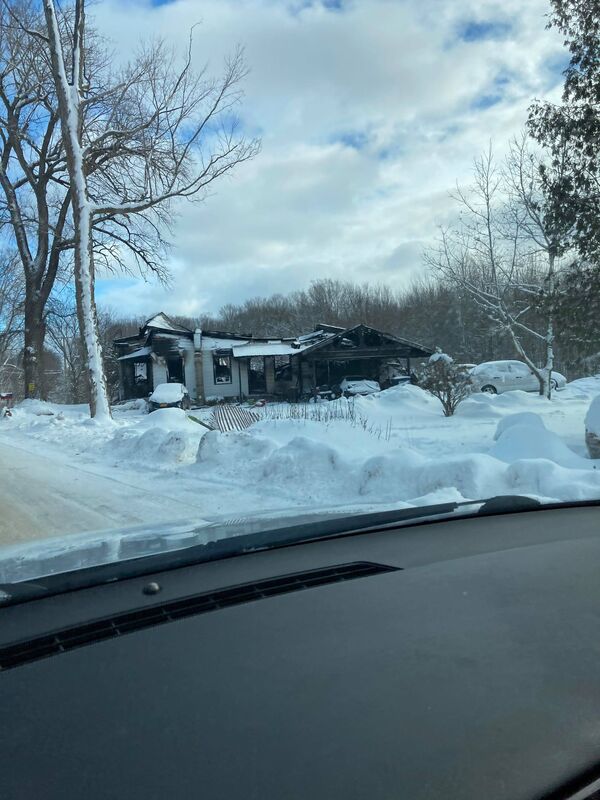


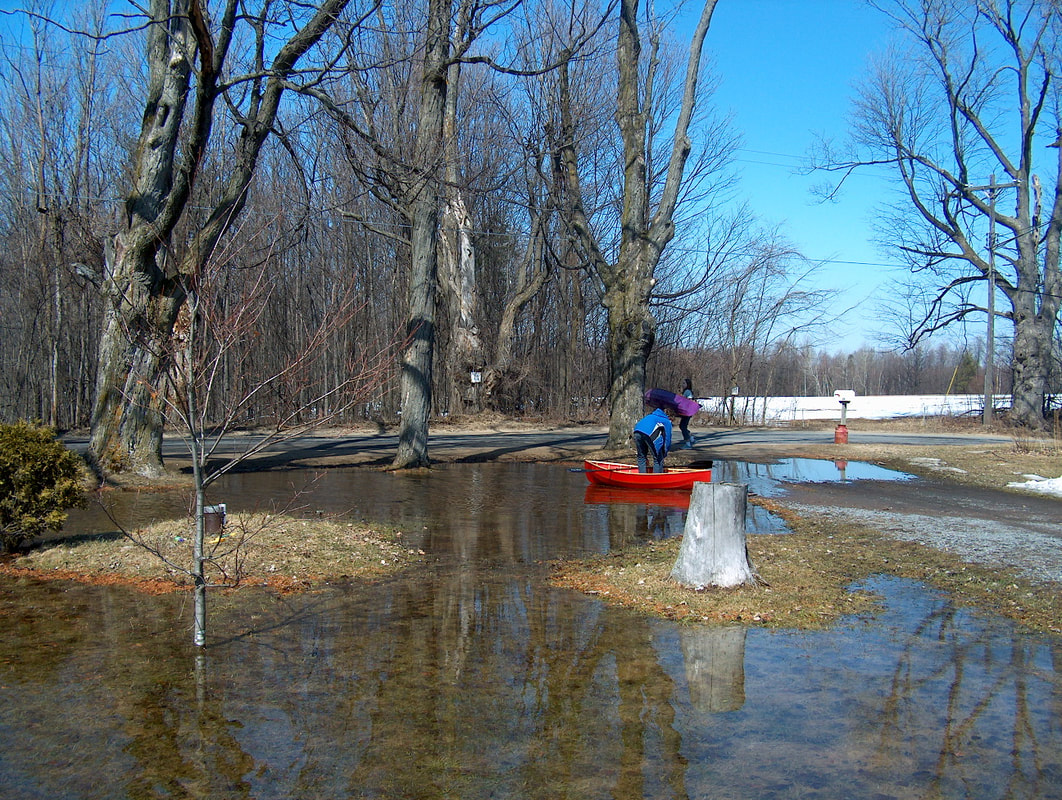
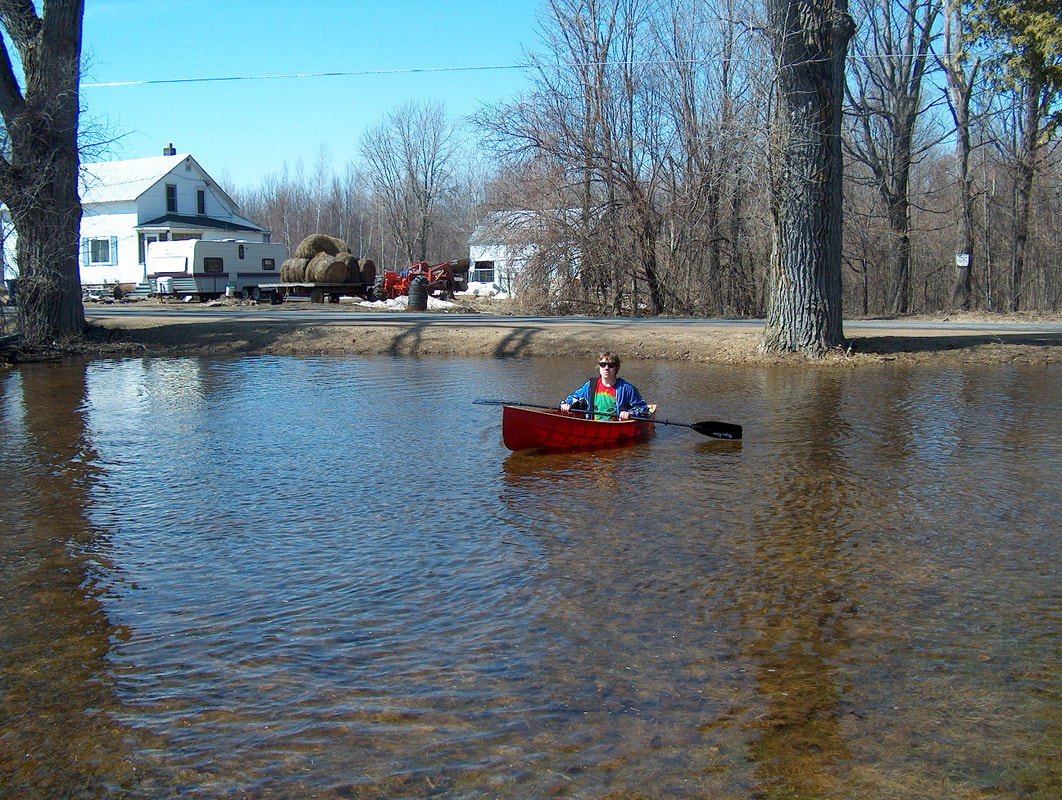
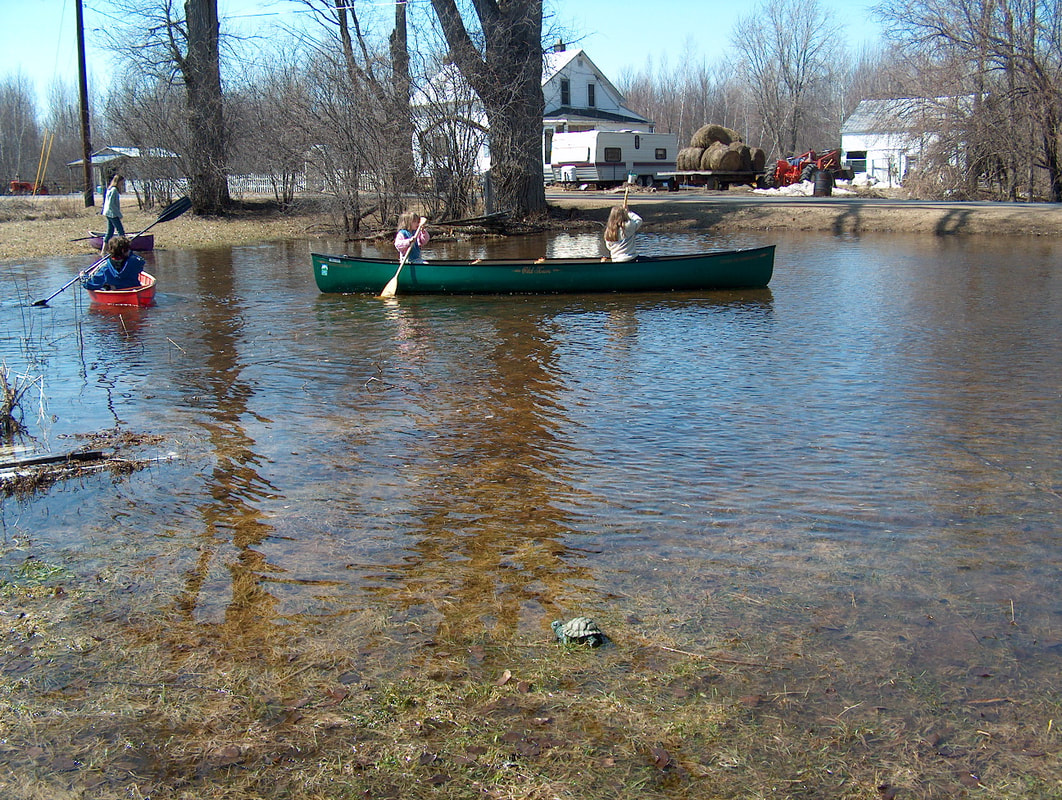
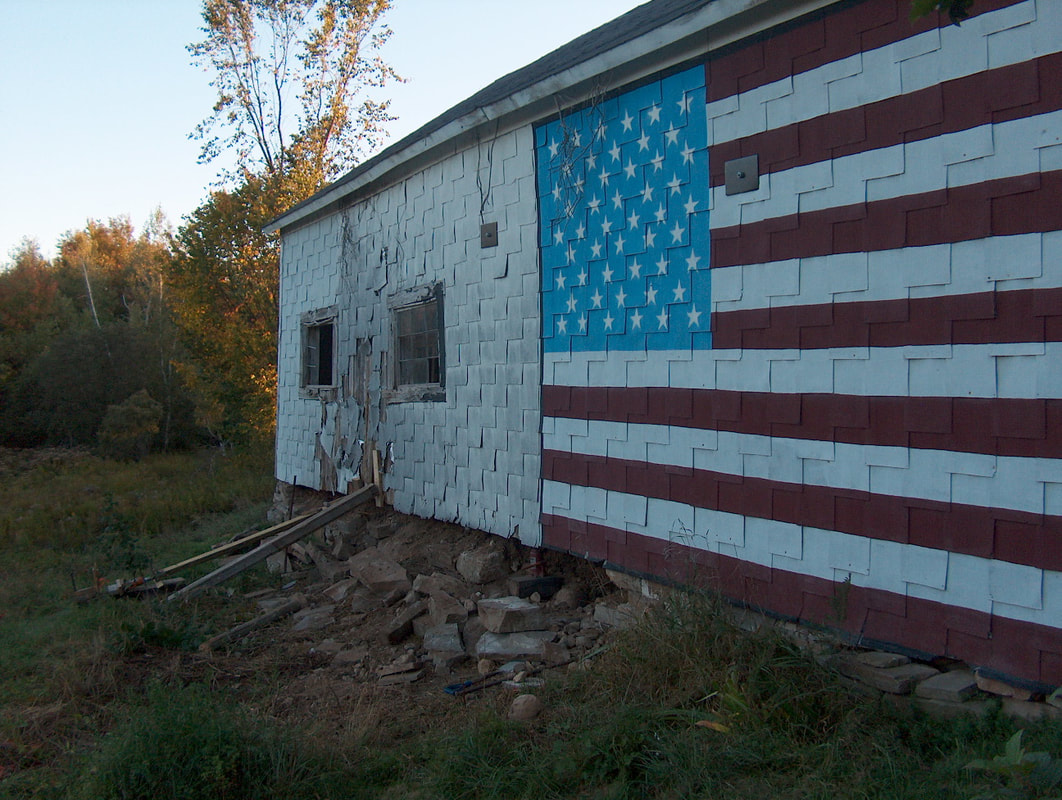
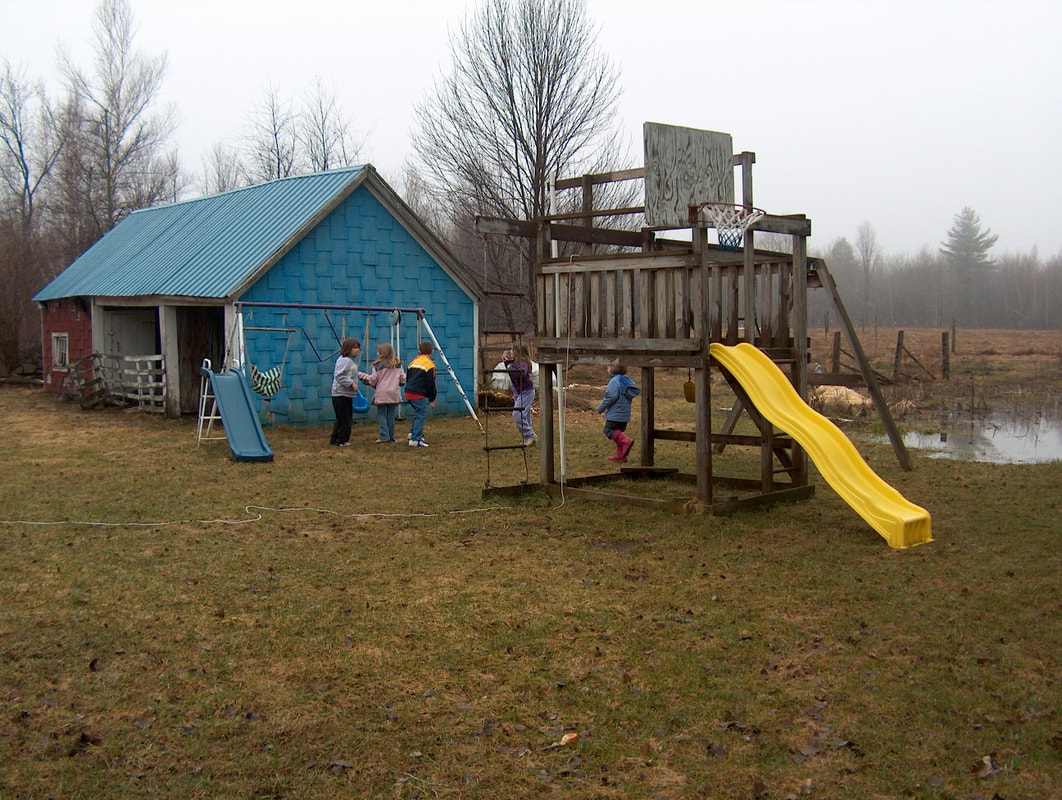



 RSS Feed
RSS Feed
